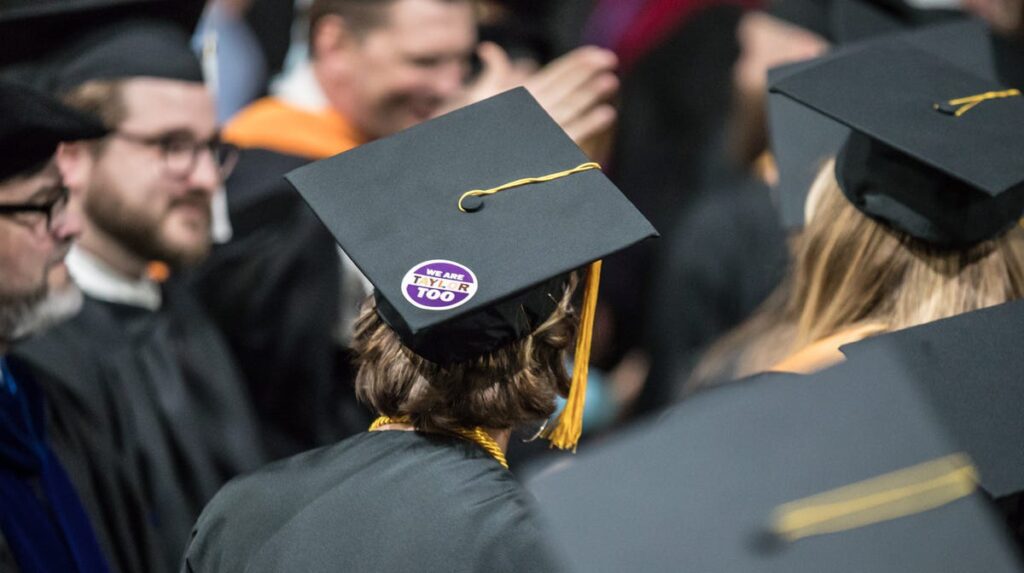IU volleyball head coach Steve Aird talks loss to Purdue in Monon Spike Match
The Purdue Boilermakers defeated the Indiana Hoosiers in four sets at the Monon Spike Match on Thursday, Oct. 16, 2025, at Gainbridge Fieldhouse in Indianapolis.
Indiana is now offering more opportunities for high school students to apply dual credits to any of the state’s private faith-based colleges or universities through a new “professional pathway credential.”
This new credential is modeled similarly to Indiana’s College Core program, which allows students to obtain a 30-credit block, or a full school year worth of class credits, to transfer to any of the state’s public colleges or universities.
However, this system of a block-credit transfer hasn’t previously been available to all the state’s private faith-based higher education institutions.
“This really was a problem statement that wasn’t even on our radar until these non-public school superintendents raised their hand,” Indiana Secretary of Education Katie Jenner told IndyStar.
Now high schoolers will be able to take those 30 credits to Anderson University, Bethel University, Grace College, Huntington University, Indiana Wesleyan University and Taylor University.
Taylor University President Michael Lindsay said he and other higher education leaders have noticed Indiana’s declining college-going rate for high schoolers and are hopeful that this new pathway will help reverse that trend.
“We would love for this to be a chance to help more students go to college, or to be able to walk in with 30 credits, which helps shorten the time, the expense, and we think could make a real positive difference,” Lindsay told IndyStar.
The state’s latest data shows that fewer than 52% of high school graduates from the class of 2023 went directly into college, which Indiana’s lowest rate in recent history.
How does the credit-earning system work
A few private religious colleges and universities have also accepted the Indiana College Core diploma, such as Marian University, Grace College, and Anderson University.
The 30 credits are meant to expand a student’s “essential knowledge and skills” and would include classes on technical skills, like math or technology; industry and civic skills, like business, economics or government; and communication skills, which could include writing, foreign language or public speaking.
Lindsay said some of the classes could be taught by Taylor University professors, like in their online class offerings, and in other cases, students can earn the credits in their high school classes.
Advanced Placement, or AP credits, earned in approved courses equivalent to the requirements for the credential can also be counted toward the 30-credit block, but with a maximum of 15 AP credits.
The prices for dual credit classes will vary by the college or university. Taylor University’s online dual enrollment classes are $200 per credit hour.
This new pathway would count as one of the “credentials of value” that are required under the state’s new high school diploma enrollment readiness seals. For a student to earn the “honors plus seal,” which is the highest diploma offered, they would need to earn one of the credentials of value.
This new pathway is feeding into the state’s continued mission of adding value and interest into the high school experience for Hoosier students, which was spurred on by the revamping of the state’s high school diplomas.
Lindsay said he also believes this furthers the state’s mission of building a closer connection between the K-12 realm and higher education.
In April, the state announced students who earn the enrollment honors plus seal would receive automatic acceptance into any of that state’s public colleges and universities.
Jenner said the conversation over allowing automatic acceptance into the religious private colleges or universities hasn’t happened yet.
Contact IndyStar K-12 education reporter Caroline Beck at 317-618-5807 or CBeck@gannett.com. Follow her on Twitter (X): @CarolineB_Indy.

